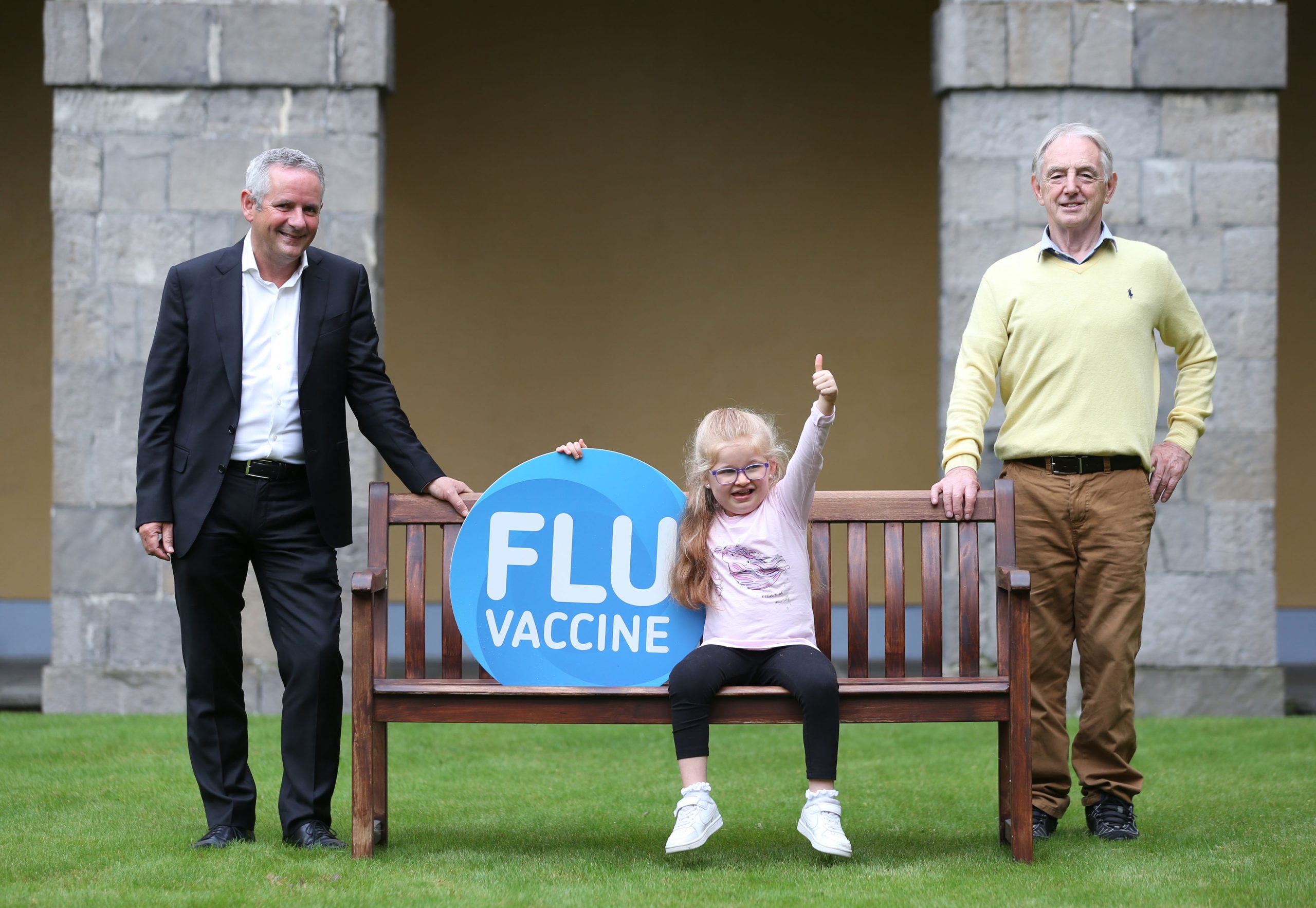The flu vaccine will help protect those most at risk of serious illness from flu. Those who are pregnant or have a certain long term medical condition can get their free vaccine through participating GPs and pharmacies. The HSE would also like to remind others recommended the flu vaccine that they can still get vaccinated through the same channels, or through your workplace if you’re a healthcare worker.
This year, the free flu vaccine is recommended if you are in one of these groups:
- Aged 65 and over
- A health care worker
- A child aged 2 – 17
- At any stage of pregnancy
- People with certain medical conditions which put them at increased risk from the complications of flu
For a full list of recommended groups visit www.hse.ie/flu*
Pregnancy and flu
If you are pregnant, you and your baby are at an increased risk of complications from flu. You are more likely to need treatment in hospital or the Intensive Care Unit because of flu if you are pregnant. The flu vaccine can be received at any stage of pregnancy. It is safe and will help protect you and your baby.
Long-term medical conditions and flu
Those with certain long-term medical conditions are more at risk of flu-related complications. The HSE is reminding people in at-risk groups that the sooner you get the flu vaccine, the sooner you will be protected against influenza this flu season. The vaccine takes about two weeks to take full effect and is the best way to prevent influenza.
Flu vaccine with other vaccines
People can get the flu vaccine at the same time as other vaccines like the COVID-19, HPV or Whooping Cough vaccines.**
Stephen Donnelly TD, Minister for Health, said:
COVID-19 is not the only virus that can have a detrimental effect on the most at-risk groups in our society. As influenza and COVID-19 are caused by different viruses, it is important that people, especially those who are vulnerable, protect themselves by getting both the flu vaccine and the COVID-19 vaccine.
Those who are pregnant should note that the flu and COVID-19 vaccines can be administered at any stage of pregnancy. Being vaccinated will reduce the chance of you becoming very unwell from COVID-19 or flu and reduce the chance of complications for your baby. I would urge everyone who is pregnant or at-risk to contact their GP or pharmacist to avail of this free service as soon as possible.
Dr Aparna Keegan, Specialist in Public Health Medicine and Flu Lead, HSE National Immunisation Office, said:
While anyone can catch the flu, some people are more at risk of becoming seriously ill from it. For those in at-risk groups, such as people with certain long-term medical conditions, it’s important to get the flu vaccine as soon as possible.
If you are pregnant, getting the flu vaccine is the best way to protect yourself and your baby against influenza. Your baby will also be protected during their first six months. This is when babies are most likely to be admitted to hospital with flu. If you are pregnant this flu season, you should get the flu vaccine.
Notes
*Some people are more at risk of getting complications if they catch flu.
You can get the flu vaccine for free if you:
- are 65 years of age and over
- are pregnant
- are a child aged 2 to 17 years
- are an adult or child aged 6 months or older at increased risk for flu related complications including
- those with long term conditions
- chronic heart disease, including acute coronary syndrome
- chronic liver disease
- chronic renal failure
- chronic respiratory disease, including chronic obstructive pulmonary disease (COPD), cystic fibrosis, moderate or severe asthma or bronchopulmonary dysplasia
- chronic neurological disease including multiple sclerosis, hereditary and degenerative disorders of the central nervous system
- diabetes mellitus
- haemoglobinopathies
- morbid obesity i.e. body mass index (BMI) over 40
- immunosuppression due to disease or treatment (including treatment for cancer)
- children with a moderate to severe neurodevelopmental disorder such as cerebral palsy
- children on long term aspirin therapy
- those with any condition that can compromise respiratory function (e.g. spinal cord injury, seizure disorder or other neuromuscular disorder) especially those attending special schools or day centres
- were born with Down syndrome
- those with long term conditions
- live in a nursing home or other long-term care facility
- some people should get the vaccine to protect themselves, their families and those they care for. These include
- those who work in healthcare
- only household contacts or carers of people who have an underlying chronic health condition or have Down syndrome are eligible to receive an influenza vaccine. A carer is described as someone who is providing an ongoing significant level of care to a person who is in need of care in the home due to illness or disability or frailty.
- People who are in regular contact with pigs, poultry or waterfowl should get the flu vaccine.
** NIAC advice states that all influenza vaccines and other vaccines (including COVID-19 vaccines) may be administered at the same time or at any interval. The exception to this is PCV for children aged 12-23 months. See the Immunisation Guidelines for more information.
For more information, visit hse.ie/flu
Help support Cork Safety Alerts by becoming a member – Click Here

